Could Aromatherapy Be your Solution For a Calmer and Happier Mind?
Aromatherapy is a healing and wellness technique which uses essential oils and fragrant plants to destress and help with a variety of ailments. The benefits of aromatherapy have been known since nearly 4,000 BCE in Mesopotamia when clay tablets were found in modern-day Syria which showed the use of herbal remedies and plant medicine. Some of the earliest used are pine needles, fennel and galbanum.
Soon after came Indian Ayurvedic techniques, which heavily involve the healing powers and aromas of plants. The first uses of Ayurveda have been used as early as 3,000 BCE with around 90% of the Indian Subcontinent still involving Ayurvedic practices to this day. In early Chinese medicine, orange was used as a stimulant and ginger was used in treating sickness and nausea.
There are many ways to administer aromatherapy including inhaled aromatherapy which has become a popular, gentle treatment to reduce mild anxiety. It has also been tried for a variety of other conditions, including respiratory problems, postsurgical nausea, menstrual pain, and tension headaches.
Topical treatment with essential oils has shown possible value for fungal infections and hair loss. Oral use of essential oils has shown promise for various digestive and respiratory problems.
In aromatherapy, chemical compounds in oils are absorbed in the body through skin application and/or inhalation. Oils in certain herbs contain chemical compounds that activate the limbic system.
Even lighting a stick of incense of your choice or using an essential oil steamer can help you destress and take a breather. Using essential oils or balms on your body or to smell can help facilitate deeper breathing, which has its own storehouse of health benefits.
Certain scents from herbs are thought to affect the body and relieve symptoms of a wide range of illnesses including insomnia and other stress-related symptoms. With the right combination of herbs, the calming effects of aromatherapy can help to reduce anxiety.
Lavender oil used purely as aromatherapy (treatment involving inhaling essential oils) has been advocated for reducing agitation in people with dementia; however, people with dementia tend to. In addition, with the right combination of herbs, calming effects of aromatherapy can help to reduce anxiety, a major symptom of panic disorder.
Rosemary, lemon, bergamont, jasmine and clary sage have been shown to have stimulating properties which can alleviate depressive symptoms of fatigue, lack of concentration, despair, and grief. Rose, lavender, ylang-ylang, neroli and sandalwood have been shown to have sedating properties which can reduce depressive symptoms of restlessness and sleep disturbance. These essential oils stimulate the raphe nucleus, which produces serotonin. Parsnip, parsley, and nutmeg contain the chemical myristicin, which has been shown to act as monoamine oxidase inhibitor.
Perhaps the most conclusive evidence of the efficacy of aromatherapy is that it has been used in many ancient healing traditions for thousands of years. A report discussing the antidepressant properties of essential oils by Perry and Perry notes that some studies have shown aromatherapy improves mood in healthy adults. Yet there are very few sound clinical trials on the effects of aromatherapy specifically on clinically depressed persons. However, aromatherapy is seen as a potentially effective treatment for a range of psychiatric disorders and given it has few adverse side effects, further methodologically sound research is clearly warranted.
The famous Vicks VapoRub® is a gel form of the essential oils of peppermint, eucalyptus, and camphor. Essential oils may also be applied directly to the skin or clothes so they will release their odor near the patient.
Preliminary controlled trials suggest that various forms of aromatherapy might be helpful for calming people with Alzheimer’s disease and other forms of dementia. For example, in one interestingly designed, but very small, study, a hospital ward was suffused with either lavender oil or water for two hours. An investigator who was unaware of the study’s design and who wore a device to block inhalation of odors entered the ward and evaluated the behavior of the 15 residents, all of whom had dementia. The results indicated that use of lavender oil aromatherapy modestly decreased agitated behavior. Essential oil of lemon balm has also shown promise for this purpose; in a double-blind study of 71 people with severe dementia, use of a lotion containing essential oil of lemon balm reduced agitation compared to placebo lotion. Here, absorption through the skin may have played a role.
A controlled study suggests that inhalation of black pepper vapor may reduce the craving for cigarettes. In this trial, a total of 48 smokers used cigarette substitute devices that delivered black pepper vapor, menthol, or no fragrance. The results showed that use of the black pepper-based dummy cigarette reduced symptoms of craving for the first morning cigarette.
Additional evidence hints that peppermint oil applied to the forehead might relieve tension headaches. A topical ointment known as Tiger Balm has also shown promise for headaches. Tiger Balm contains camphor, menthol, cajaput, and clove oil. A double-blind study enrolling 57 people with acute tension headache compared the application of Tiger Balm to the forehead against placebo ointment as well as the drug acetaminophen (Tylenol). The placebo ointment contained mint essence to make it smell similar to Tiger Balm. Real Tiger Balm proved more effective than placebo and just as effective and more rapid-acting than acetaminophen.
Inhaled peppermint oil may be used to relieve postsurgical nausea. Inhaled peppermint oil may also be helpful for relieving mucus congestion of the lungs and sinuses; however, there is only weak supporting evidence for this use. In one study, abdominal massage with lavender, rose, and clary sage reduced menstrual pain to a greater extent than an almond oil placebo. In another study, acupressure combined with lavender, rosemary, and peppermint aromatherapy was more effective than acupressure alone for treating the shoulder pain caused by a certain form of stroke. Controlled studies have evaluated proprietary-inhaled aromatherapy preparations for treating the common cold and preventing flare-ups of chronic bronchitis , but the results were marginal at best.
A controlled study evaluated rosemary and also lavender aromatherapy for enhancing memory and mental function , but found results that were mixed at best. In a large, controlled trial (more than 600 participants), lavender oil in bathwater failed to improve pain after childbirth . However, lavender oil has shown a bit of promise for insomnia . Another large study failed to find aromatherapy more helpful than placebo for reducing psychological distress among people undergoing radiation therapy for cancer.
“Aromatherapy (Therapy) Overview.” FoundHealth, www.foundhealth.com/aromatherapy-therapy/overview.
“Aromatherapy: Do Essential Oils Really Work?” Johns Hopkins Medicine, www.hopkinsmedicine.org/health/wellness-and-prevention/aromatherapy-do-essential-oils-really-work.
Cronkleton, Emily. “What Is Aromatherapy and How Does It Help Me?” Healthline, Healthline Media, 8 Mar. 2019, www.healthline.com/health/what-is-aromatherapy#TOC_TITLE_HDR_1.
“The History of Aromatherapy.” Aromatherapy Associates, www.aromatherapyassociates.com/history-of-aromatherapy.
Join Our Community
Archives
- January 2023
- December 2022
- September 2022
- August 2022
- June 2022
- May 2022
- April 2022
- March 2022
- February 2022
- January 2022
- December 2021
- November 2021
- October 2021
- September 2021
- August 2021
- July 2021
- June 2021
- May 2021
- March 2021
- September 2020
- August 2020
- July 2020
- June 2020
- May 2020
- April 2020
- March 2020
- February 2020
Subscribe

Sign up to receive FREE toolkit
From Dr. Hyman, #1 NY Times & Amazon Author
We never spam or sell your e-mail
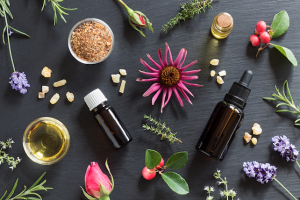
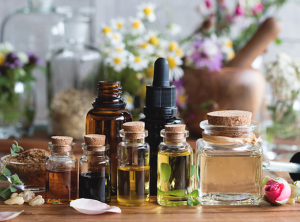
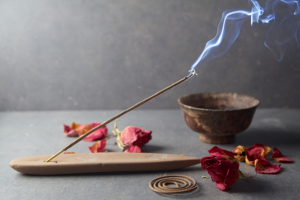
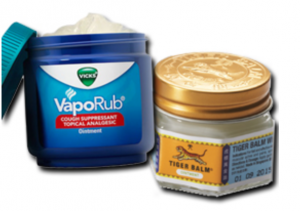
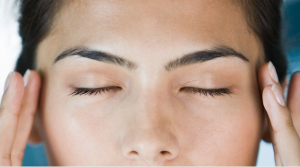



Follow Our Every Move